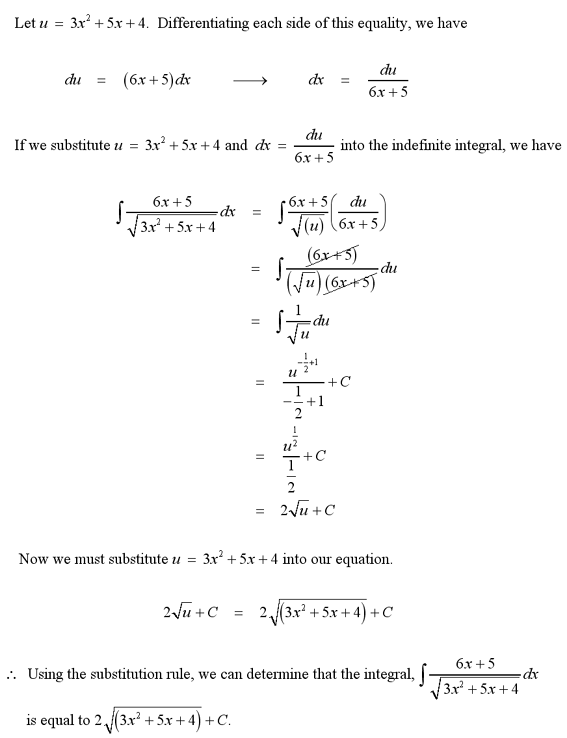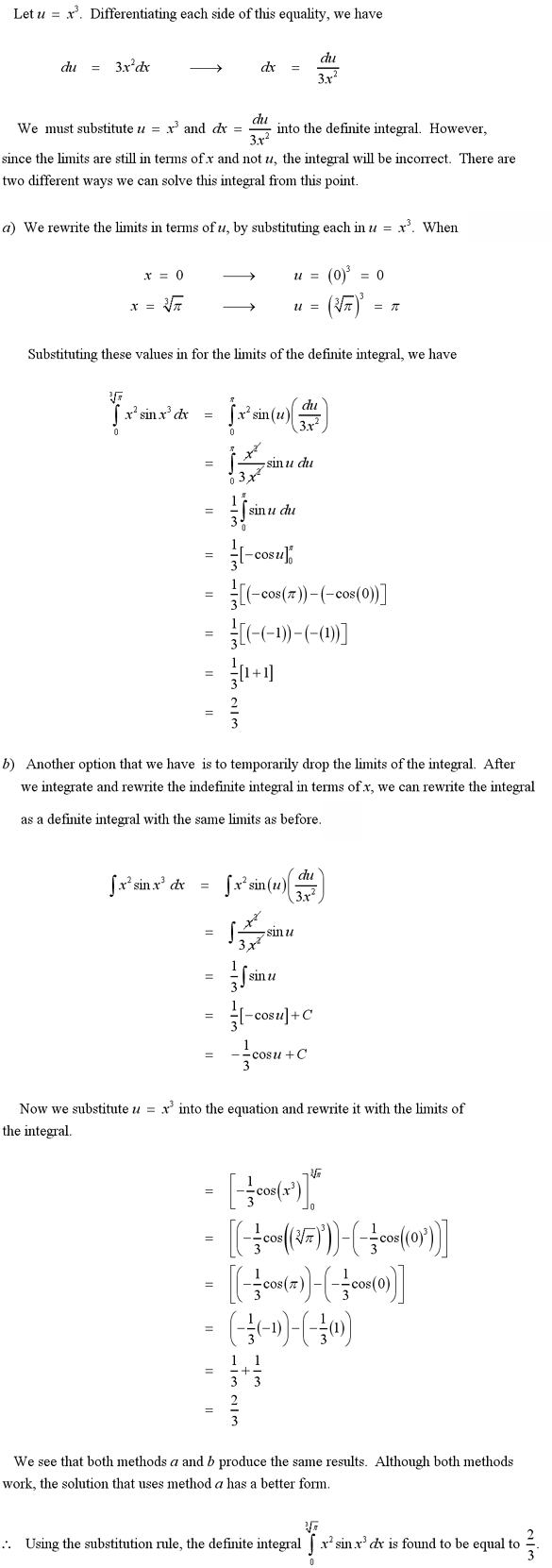Suppose that we have an integral such as

With our current knowledge of integration, we can't find the general equation of this indefinite integral. There are no antidifferentiation formulas for this type of integral. However, from our knowledge of differentiation, specifically the chain rule, we know that 4x3 is the derivative of the function within the square root, x4 + 7. We must also account for the chain rule when we are performing integration. To do this, we use the substitution rule.
The Substitution Rule states: if u = g(x) is a differentiable function and f is continuous on the range of g, then

Note: Recall that if u = g(x), then du = g'(x)dx. If we substitute u into the left side of the equation for g(x) and du for g'(x)dx, then we get the integral on the right side of the equation.
From our previous example, if we let u = (x4+7), then du = 4x3dx. If we substitutite these values into the integral, we get an integral that can be solved using the antidifferentiation formulas.

However, this answer is still in terms of u. We must substitute u = (x4+7) into the resulting function, so that it is a function of x, rather than u.

The substitution rule also applies to definite integrals. The Substitution Rule for Definite Integrals states: If f is continuous on the range of u = g(x) and g'(x) is continuous on [a,b], then

Examples
Find the general indefinite integrals using the substitution rule |
Solution: |
 |
Evaluate the definite integral using the substitution rule
 |
Solution: |
 |
댓글 없음:
댓글 쓰기